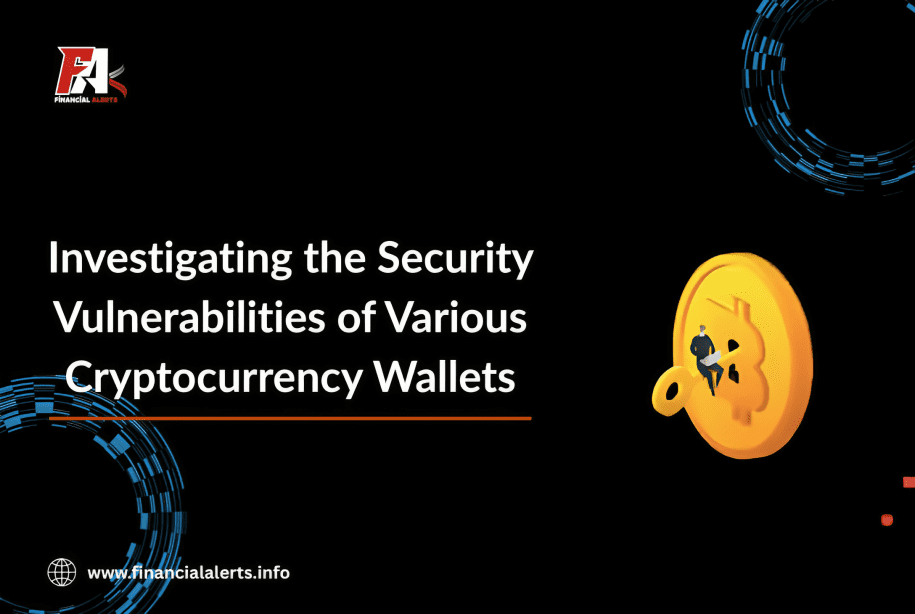The cryptocurrency industry has expanded at an incredible pace in recent years. Every day, more people are joining the cryptocurrency market, both to trade and to permanently store their digital assets. However, the security of crypto wallets is becoming a bigger worry as a result of this expansion.
Digital or physical cryptocurrency wallets are essential for holding coins such as Bitcoin, Ethereum, and numerous other digital currencies. However, many of users are not aware of all the risks they could encounter. Let’s examine the security flaws in various cryptocurrency wallet types and how users can safeguard their money.
Types of Cryptocurrency Wallets
To understand the risks, we must first understand the types of wallets available:
- Software Wallets (hot wallets): These include desktop, mobile, and web wallets. They are connected to the internet and convenient for daily use.
- Hardware Wallets (cold wallets): Devices like Ledger or Trezor store keys offline and are widely considered secure for long-term holdings.
- Paper Wallets: A physical printout of your private keys. These are offline but not very practical.
- Exchange Wallets: Provided by platforms like Binance or Coinbase. Convenient but riskier since the private keys are controlled by the exchange.
Common Crypto Wallet Vulnerabilities
1. Phishing Attacks
One of the most common methods hackers use is phishing. Users are tricked into entering wallet credentials on fake websites or apps that look identical to real ones. These attacks target software wallets the most.
Keyword tip: digital wallet hacks
2. Malware and Keyloggers
A software wallet on a device infected with malware is highly vulnerable. Keyloggers can capture private keys as users type them. If your system is not protected, your wallet isn’t safe either.
Protective tip: Use trusted antivirus programs and avoid downloading unknown software.
3. Seed Phrase Theft
Most wallets provide a recovery or seed phrase. Anyone with this phrase can access your wallet. Leaving it in a notepad file, email, or cloud storage increases the risk.
High-search keyword: safe cryptocurrency storage
Always store your seed phrase offline and out of sight. Some users go a step further and store it in a fireproof safe.
Hardware vs Software Wallet: Which Is Safer?
The debate between hardware vs software wallet security is ongoing. While software wallets are easy to use and suitable for beginners, they are more exposed to cyber threats. On the other hand, hardware wallets are ideal for long-term investors who want safe cryptocurrency storage without internet exposure.
Low competition keyword to use: best crypto wallet for safety
Hardware wallets are not completely invulnerable, but they offer much stronger protection. Users must beware of buying second-hand hardware wallets, as these may be pre-configured with malware.
Exchange Wallet Risks
Many newcomers prefer storing their crypto on exchanges due to ease of access. However, this is risky. Exchanges have been hacked before—Mt. Gox, Bitfinex, and others suffered major breaches, costing users millions.
Key tip: Never store large amounts of crypto on exchange wallets.
Instead, use an exchange only for trading. Transfer funds to your private wallet for long-term holding.
How to Strengthen Your Crypto Wallet Security
- Use Two-Factor Authentication (2FA): Always enable 2FA on your wallet app or exchange.
- Regular Software Updates: Ensure that your wallet software and devices are always updated.
- Avoid Public Wi-Fi: Never access your crypto wallet using a public or untrusted internet connection.
- Cold Storage: For large amounts of cryptocurrency, cold storage is always the best option.
SEO-friendly keyword: crypto wallet protection tips
By taking these steps, you minimize the risk of falling victim to digital wallet hacks or phishing attempts.
Real Cases of Crypto Wallet Breaches
In 2021, a popular mobile wallet app was exploited due to a vulnerability in its code. Hackers stole nearly $8 million in ETH. In another case, a user’s wallet was drained after saving the seed phrase on a Google Doc.
These real-life examples highlight how crypto wallet security is not just about having the right tool but also using it the right way.
Conclusion
Despite there are many opportunities in the cryptocurrency world, there are also many risks. It’s critical to comprehend the risks associated with safe cryptocurrency storage, regardless of your level of experience. Always pick the safest cryptocurrency wallet, stay away from common blunders, and adhere to the most recent security advice.
Hacking techniques will change as the industry does. However, you can keep your cryptocurrency assets safe and make them available to you alone if you have the correct tools and attitude.

I am a digital marketing executive as well as content writer in the stock market and crypto related blogs. My goal is to provide simple, interesting and reliable information to readers through my articles so that they always stay updated with the world of stock market and crypto.




uqjamc
Your article helped me a lot, is there any more related content? Thanks! https://www.binance.com/ar/register?ref=PORL8W0Z
Thank you for your sharing. I am worried that I lack creative ideas. It is your article that makes me full of hope. Thank you. But, I have a question, can you help me?